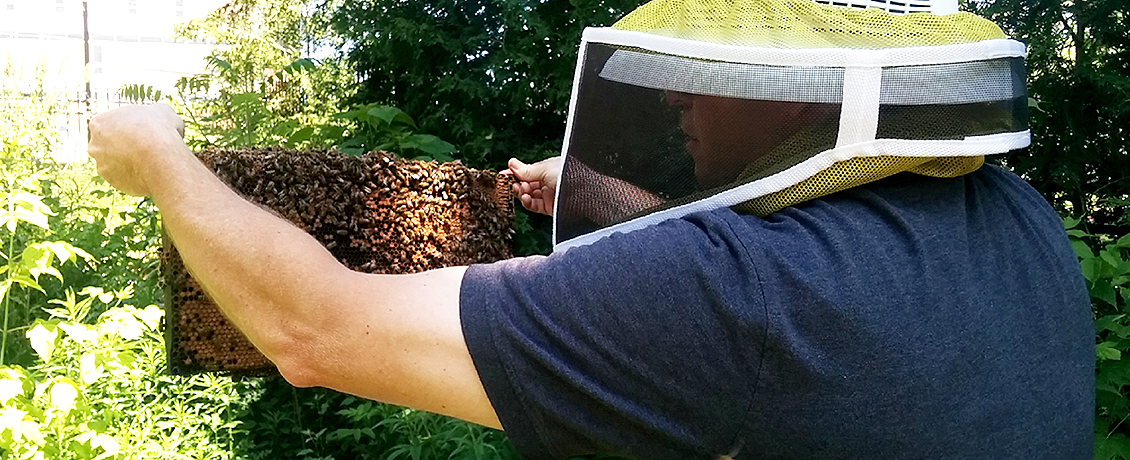
There’s something sweet happening at Laurier – all thanks to the university's growing population of honeybees.
A partnership between Laurier’s Sustainability Office, Office of Indigenous Initiatives, and Facilities and Asset Management led to the recent establishment of two beehive colonies at Laurier’s Northdale campus in Waterloo. The buzz will move to Laurier's Brantford campus this spring when two colonies are installed on the rooftop of Market Square.
The colonies – registered with the Provincial Apiarist of the Ontario Ministry of Agriculture, Food and Rural Affairs – can house between 50,000 and 80,000 bees at peak capacity. One beehive can produce more than 100 pounds of honey that can be harvested by beekeepers.
“Our colonies are home to Buckfast honeybees, which are known for their non-aggressive behaviour and honey production,” says Tyler Plante outreach and program coordinator in Laurier's Sustainability Office. “We’re currently planning outreach and educational programming for the apiary in Waterloo that might include course partnerships, public workshops and awareness campaigns.”
Honeybees, which have seen declining populations in recent years, play an important role as pollinators in food production. Laurier's growing number of apiaries will provide unique learning, research and teaching opportunities.
Plante and Laurier Grounds Services Manager James Emary are both trained in urban beekeeping and there are plans to train more staff and students to assist with maintaining the colonies. Plante, Emary and members of student group Enactus Laurier have been harvesting the honey produced in the Waterloo campus hives.
Enactus Laurier led the branding of "Laurier Hawk Honey," one of nine projects selected for the 2017 Hawkstarter crowdfunding campaign organized by Development and Alumni Relations. Funds raised as part of the campaign will help add more hives to the apiary, with one hive dedicated to supporting experiential learning opportunities.
Enactus Laurier also facilitated the university’s application for a "Bee City Campus" designation, which if successful would make Laurier among the first universities in Canada to receive the designation, which is given to schools that support, establish and maintain healthy pollinator habitats.